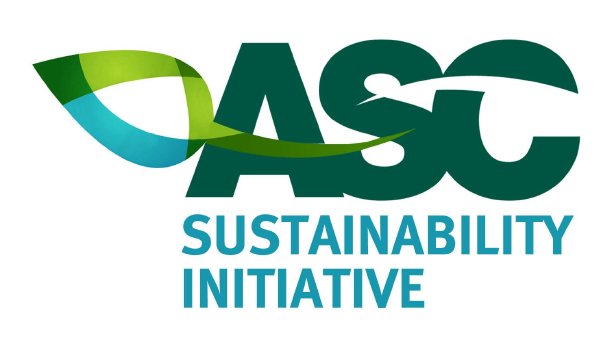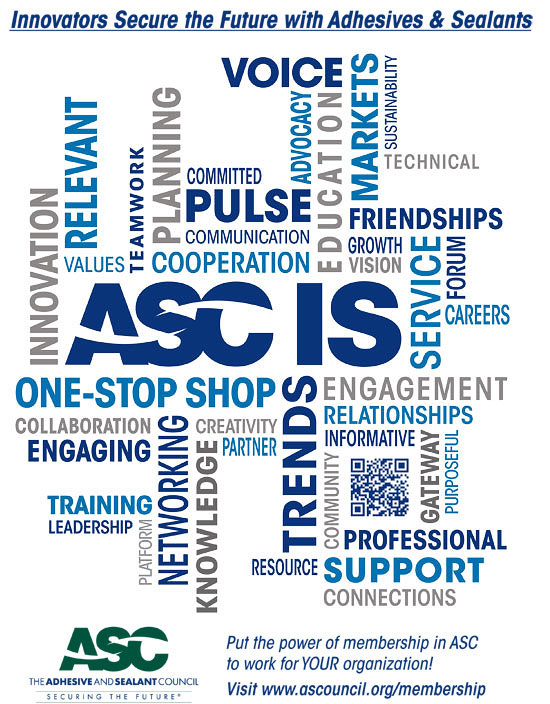Adhesive & Sealant Sustainability

"The adhesive and sealant industry is essential to
sustainability as we develop, enable and promote
technologies that support a growing world population
to improve quality of life and to use the planet’s
resources responsibly and efficiently."

"The adhesive and sealant industry is essential to
sustainability as we develop, enable and promote
technologies that support a growing world population
to improve quality of life and to use the planet’s
resources responsibly and efficiently."
Adhesives and sealants can contribute to and enable sustainability benefits of many products.
- Lightweighting vehicles enabling better fuel efficiency and reducing greenhouse gas emissions
- Air sealing in residential and commercial buildings to save energy
- Water management solutions preventing water infiltration at critical joints
- Better bonding and sealing solutions for multiple substrates than mechanical fasteners, extending the life of a product and reducing waste
- Eliminating corrosion associated with metal fasteners
For more examples, download ASC's "Adhesives and Sealants: Chemical Management and Sustainability Benefits in Retail Markets"
ASC members - Get Involved! Join ASC's Sustainability Committee
Contact Bill Allmond for more details
ASC is pleased to offer the industry more FREE sustainability resources!
See sections below....
Contact Connie Howe for more information on the Sustainability Series or Sustainability Summit
Our four strategic objectives are to
-
Collect member and industry insights, informing initial priority areas for sustainability work.
-
Source member case studies on sustainability initiatives to promote industry wins and highlight best practices.
-
Map sustainability value chain for select markets to communicate the value of sustainability.
-
Develop member resources to expand the footprint and impact of sustainability focused education.
ASC defines adhesive and sealant sustainability as follows:
"For the adhesives and sealants industry, sustainability is met by using materials and manufacturing processes, developing products, and providing solutions with environmental benefit."
The ASC Sustainability Initiative identifies three progress areas of focus:
- Advancing the circular economy
- Reducing environmental impact in operations and supply chain
- Making a positive impact for our employees and communities

Sustainability Summit and Convention Programming-See events page for details.
- September- Sustainability Summit is a highly collaborative program designed to reach consensus and understanding on the sustainability issues that are important to suppliers, manufacturers and end users across all adhesive and sealant markets. In addition to our speakers presentations, we have designed additional engaging segments where attendees and speakers will work together to help build a business case for sustainability.
- April - Convention contains multiple sessions on Sustainability along with diverse technical and business content across markets and technologies, EXPO and Immersive short courses.
ASC Sustainability Reports
- 2024 Adhesive & Sealant Sustainability Value Chain Mapping Report Addendum (ASC)
- Adhesive and Sealant Sustainability Value Chain Map Assessment (ASC)
- Adhesives and Sealants: Chemical Management and Sustainability Benefits in Retail Markets (ASC)
Podcast Recordings
- PODCAST: Growth of Sustainability in the Adhesives and Sealants Industry (ASC)
- PODCAST: Growing Influence of ESG - Environmental, Social, & Governance - in the Adhesive & Sealant Industry (ASC)
- PODCAST: Greenwashing - Drivers, Trends, Litigation Outlook, and Risk Mitigation (ASC)
- PODCAST: How Do Adhesives For Hygiene Articles Enable Environmental Sustainability (H.B. Fuller)
- PODCAST: Preview of 2023 Sustainability in Packaging US Conference (ASC)







